Special Report
New World Order? How BRICS Economies Have Surpassed US and Europe
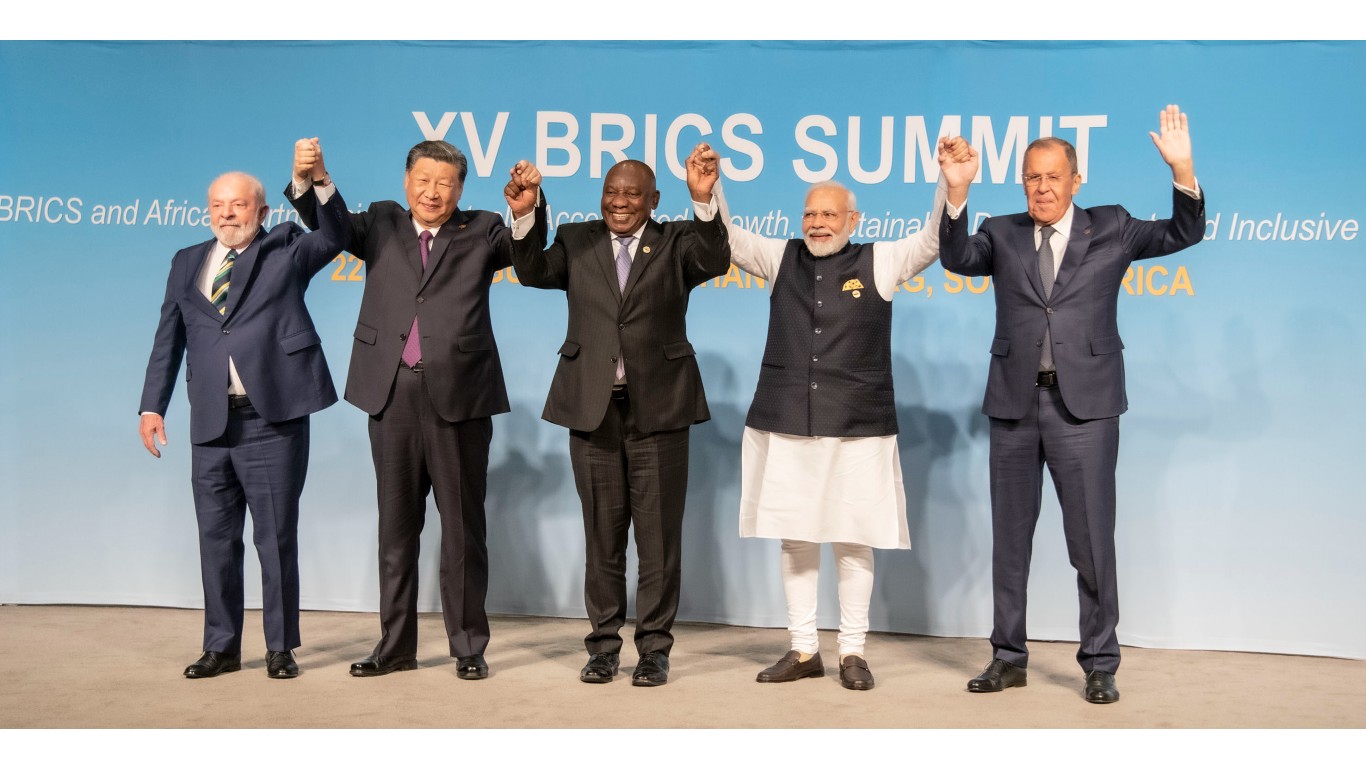
Published:

It is official. Starting on Jan. 1, the five-nation BRICS alliance will expand, adding six more nations. For brevity’s sake, let us just call it the BRICS+.
The original BRIC bloc of Brazil, Russia, India, and China held its first summit during the last major global economic crisis in 2009 with a mission of countering Western global economic dominance. A year later, South Africa signed up, adding the “S” to BRICS. The original acronym was coined in 2001 by former Goldman Sachs economist and former U.K. Treasury Minister Jim O’Neill.
Six more developing countries joined the league during the 15th BRICS Summit in Johannesburg in August: Argentina, Egypt, Ethiopia, Iran, Saudi Arabia, and the United Arab Emirates.
With this expansion, nearly 3.7 billion people, or about 46% of the world’s population are now part of BRICS+. China and India alone account for over 35% of the world’s population. These countries together hold 29% of global gross domestic product, 22% of exports, and 42% of global oil output.
By comparison, the Group of Seven nations and the European Union make up 1 billion people, or about 12.7% of the world’s population. However, they hold 51% of global GDP and 47% of exports. The U.S. alone accounts for a quarter of the world’s GDP, while the EU accounts for over 16%. G7 nations (without the EU) produce 27% of global oil output, but most of this comes from the United States. (Also see, the most innovative countries.)
The 11 countries of BRICS+ have much higher rates of population growth, though the average life expectancy is far lower compared to the Western G7 and EU nations. While G7 and EU countries, with the exception of the U.S., all have life expectancy above 80 years, all 11 BRICS nations have life expectancy below 79 years.
The expanded BRICS countries are also more authoritarian and corrupt, according to two widely used measures. And GDP per capita, often used as an indicator of standard of living in a country, is also far lower in most expanded BRICS group countries than in the G7 and EU nations. (This is the richest country in the world.)
Several other countries have recently applied for BRICS membership, including Venezuela, Vietnam, Thailand, Cuba, and Bahrain. If accepted, the influence and economic heft of the BRICS will grow even further.
To compare BRICS economies to G7 economies, individually and as a group, 24/7 Wall St. reviewed several measures from different sources. 2022 population, 10-year population growth, 2022 gross domestic product and GDP per capita in current U.S. dollars, exports in current U.S. dollars, and 2021 average life expectancy at birth came from the World Bank.
Oil production for 2022 in million barrels per day (Mb/d) came from the U.S. Energy Information Administration. Transparency International’s Corruption Perceptions Index ranks countries on a score 0 to 100 with lower values denoting more corruption. The Economist Intelligence Unit’s Democracy Index ranks countries on a scale of 1 to 10, with higher scores denoting more representative forms of government.
How the BRICS alliance compares its G7 and Western counterparts.

Population, 2022 (World: 7,951,149,546)
> Founding BRICS countries: Total: 3,248,111,292 — 40.9% of world
> Expansion BRICS countries: Total: 415,005,376 — 5.2% of world
> Total BRICS: Total: 3,663,116,668 — 46.1% of world
> G7 without EU: Total: 775,186,177 — 9.7% of world
> G7 with EU: Total: 1,012,269,909 — 12.7% of world
[in-text-ad]
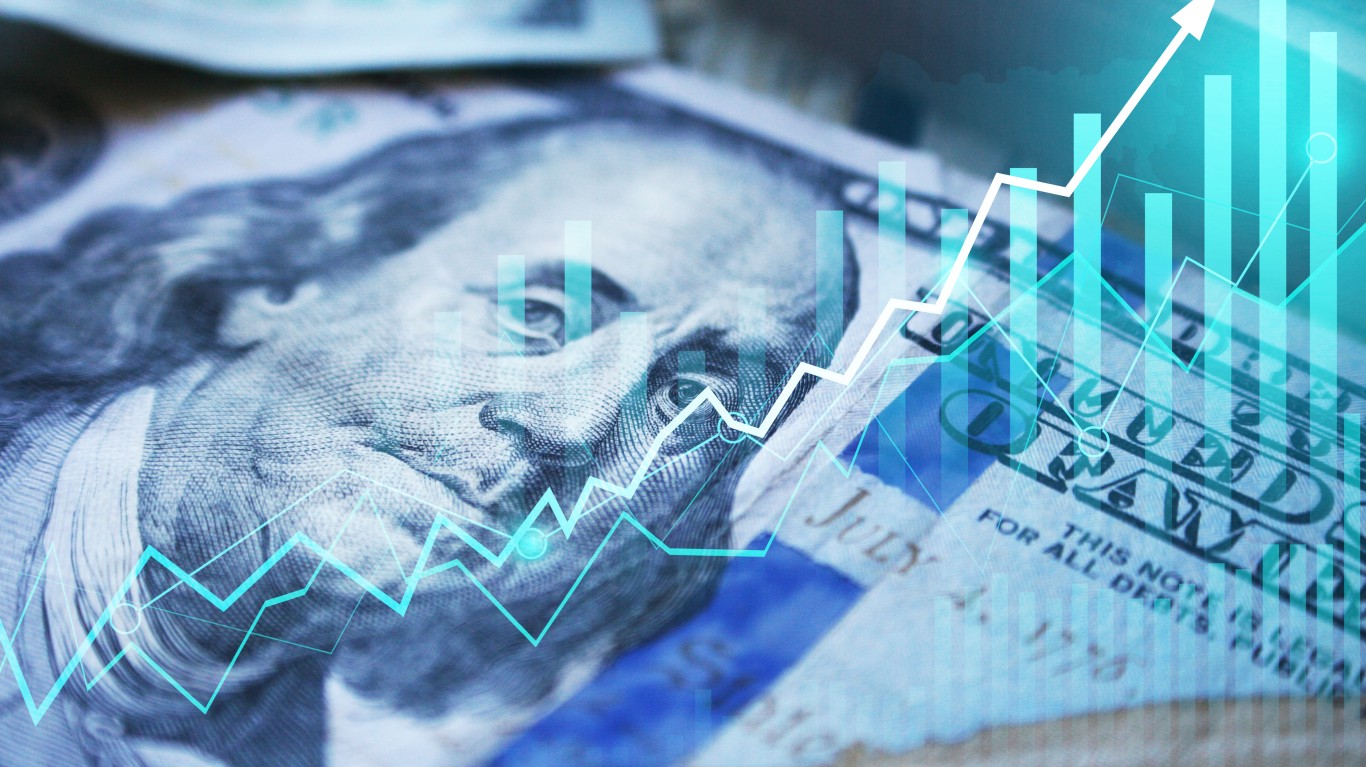
GDP (World: $100,562 billion)
> Founding BRICS countries: Total: $25,914.7 billion — 25.8% of world
> Expansion BRICS countries: Total: $3,240.5 billion — 3.2% of world
> Total BRICS: Total: $29,155.2 billion — 29.0% of world
> G7 without EU: Total: $43,769.9 billion — 43.5% of world
> G7 with EU: Total: $51,545.8 billion — 51.3% of world
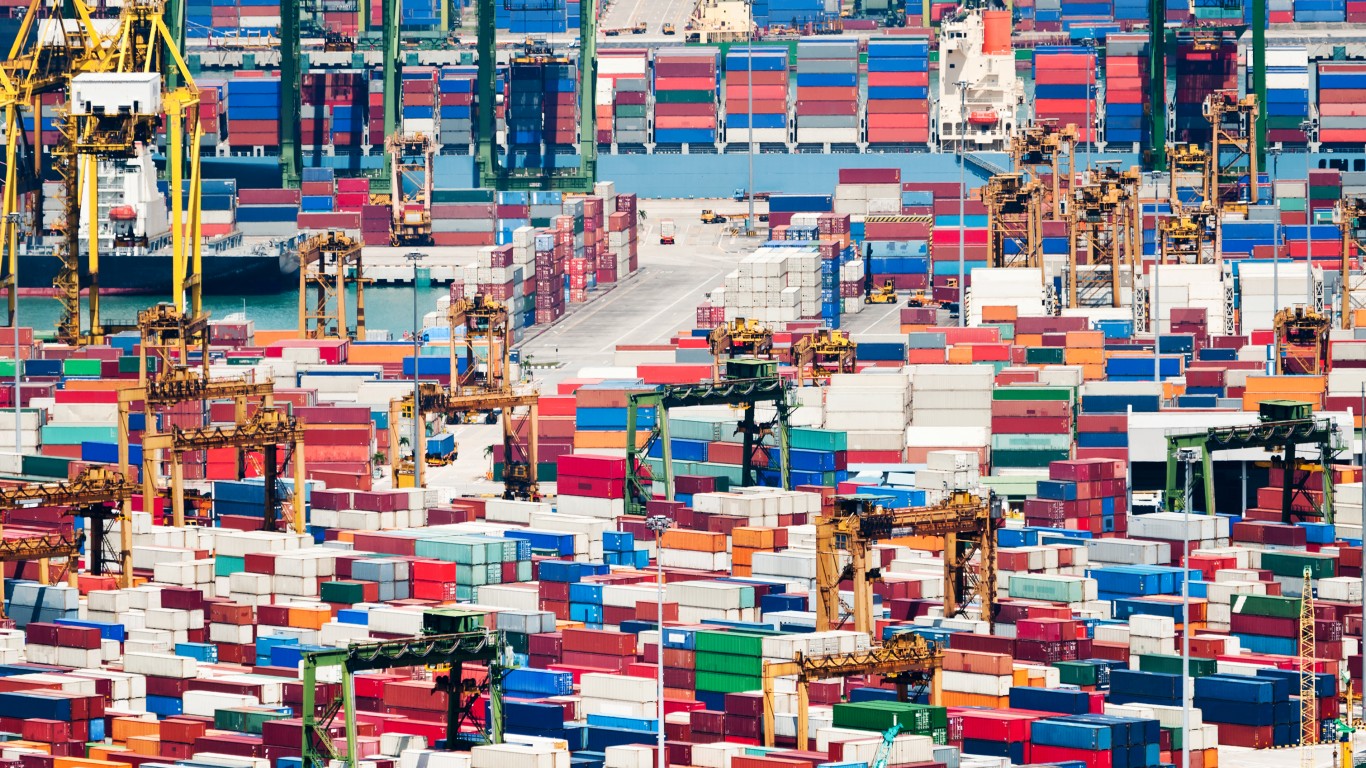
Exports (World: $30,773 billion)
> Founding BRICS countries: Total: $5,626.4 billion — ~18.3% of world
> Expansion BRICS countries: Total: $1,043.1 billion — ~3.4% of world
> Total BRICS: Total: $6,669.4 billion — ~21.7% of world
> G7 without EU: Total: $8,920.3 billion — ~29.0% of world
> G7 with EU: Total: $14,481.2 billion — ~47.1% of world
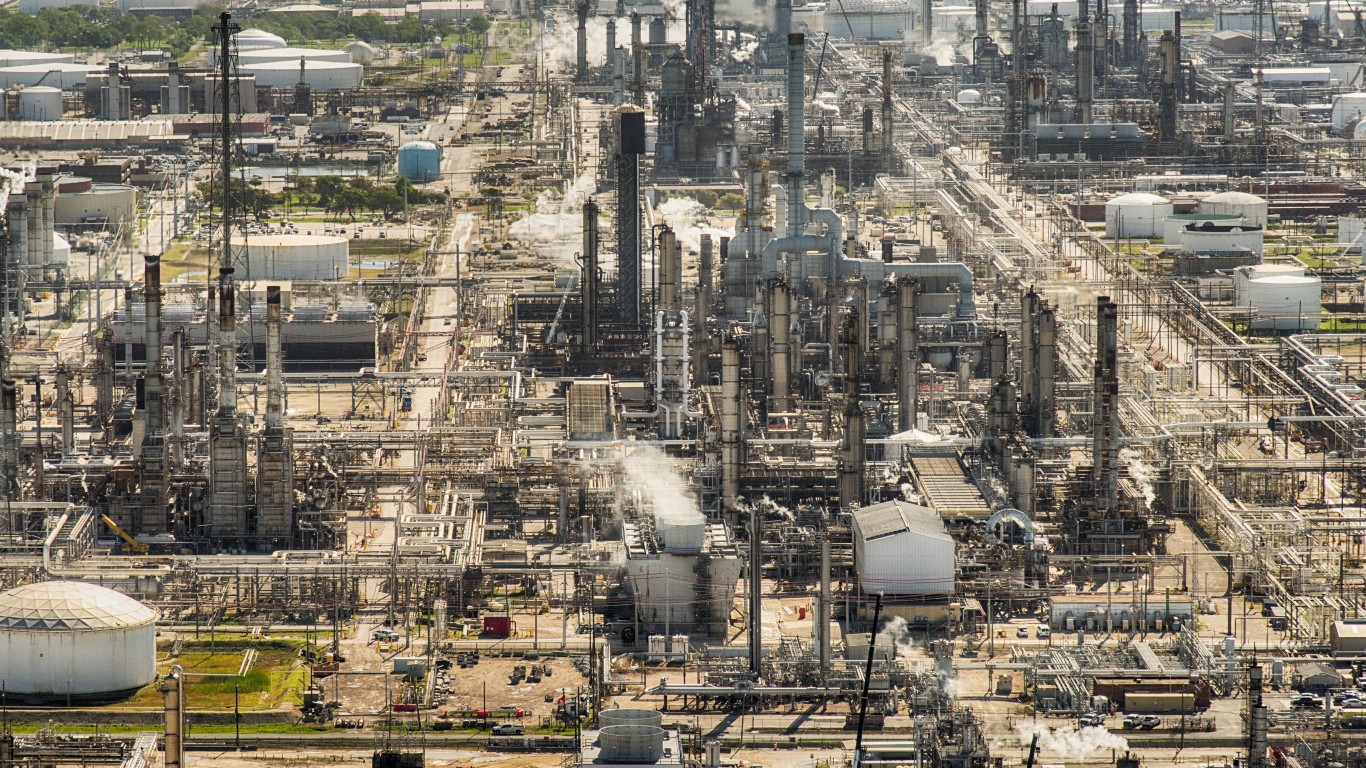
Oil Production Mb/d, 2022 (World: 100021.7 Mb/d)
> Founding BRICS countries: Total: 20,834.5 Mb/d — 20.8% of world
> Expansion BRICS countries: Total: 21,494.6 Mb/d — 21.5% of world
> Total BRICS: Total: 42,329.1 Mb/d — 42.3% of world
> G7 without EU: Total: 27,306.8 Mb/d — 27.3% of world
> G7 with EU: Total: N/A
[in-text-ad-2]

GDP per capita (World: $12,647)
> Founding BRICS countries: $7,978 — 63.1% of world
> Expansion BRICS countries: $7,808 — 61.7% of world
> Total BRICS: $7,959 — 62.9% of world
> G7 without EU: $56,464 — 446.4% of world
> G7 with EU: $50,921 — 402.6% of world

Avg. life expectancy at birth, 2021 (World: 71.3)
> Founding BRICS countries: Range: 62.3 to 78.2 years
> Expansion BRICS countries: Range: 65.0 to 78.7 years
> Total BRICS: Range: 62.3 to 78.7 years
> G7 without EU: Range: 76.3 to 84.4 years
> G7 with EU: Range: N/A
[in-text-ad]

Corruption Index (lower score denotes more corruption) (World: 43.0)
> Founding BRICS countries: Average: 39.2/100 — Range of ranks: 66 to 136
> Expansion BRICS countries: Average: 42.8/100 — Range of ranks: 24 to 150
> Total BRICS: Average: 41.2/100 — Range of ranks: 24 to 150
> G7 without EU: Average: 71.3/100 — Range of ranks: 10 to 42
> G7 with EU: Average: N/A

Democracy Index (higher scores denotes more democratic) (World: 5.3)
> Founding BRICS countries: Average: 5.018/10 — Range of ranks: 45 to 156
> Expansion BRICS countries: Average: 3.315/10 — Range of ranks: 50 to 154
> Total BRICS: Average: 4.089/10 — Range of ranks: 45 to 156
> G7 without EU: Average: 8.271/10 — Range of ranks: 12 to 30
> G7 with EU: Average: N/A

Population growth (World: 10.0%)
> Founding BRICS countries: Average: 6.3%
> Expansion BRICS countries: Average: 15.3%
> Total BRICS: Average: 11.2%
> G7 without EU: Average: 3.4%
> G7 with EU: Average: 4.1%
BRICS founding and expansion countries
[in-text-ad-2]

Brazil
> GDP, 2022: $1,920 billion (#11 highest of 215 countries)
> Pct of world GDP: 1.9%
> Exports, 2022: $385 billion (1.3% of world exports)
> Oil Production, 2022: 3,803.3 Mb/d (3.8% of world oil production)
> Population, 2022: 215,313,498 (2.7% of world population)
Russia
> GDP, 2022: $2,240 billion (#8 highest of 215 countries)
> Pct of world GDP: 2.2%
> Exports, 2022: $632 billion (2.1% of world exports)
> Oil Production, 2022: 10,937.7 Mb/d (10.9% of world oil production)
> Population, 2022: 143,555,736 (1.8% of world population)
[in-text-ad]

India
> GDP, 2022: $3,385 billion (#5 highest of 215 countries)
> Pct of world GDP: 3.4%
> Exports, 2022: $760 billion (2.5% of world exports)
> Oil Production, 2022: 878.7 Mb/d (0.9% of world oil production)
> Population, 2022: 1,417,173,173 (17.8% of world population)

China
> GDP, 2022: $17,963 billion (#2 highest of 215 countries)
> Pct of world GDP: 17.9%
> Exports, 2022: $3,714 billion (12.1% of world exports)
> Oil Production, 2022: 5,118.5 Mb/d (5.1% of world oil production)
> Population, 2022: 1,412,175,000 (17.8% of world population)

South Africa
> GDP, 2022: $406 billion (#38 highest of 215 countries)
> Pct of world GDP: 0.4%
> Exports, 2022: $136 billion (0.4% of world exports)
> Oil Production, 2022: 96.4 Mb/d (0.1% of world oil production)
> Population, 2022: 59,893,885 (0.8% of world population)
[in-text-ad-2]

Argentina
> GDP, 2022: $633 billion (#22 highest of 215 countries)
> Pct of world GDP: 0.6%
> Exports, 2022: $106 billion (0.3% of world exports)
> Oil Production, 2022: 786.8 Mb/d (0.8% of world oil production)
> Population, 2022: 46,234,830 (0.6% of world population)
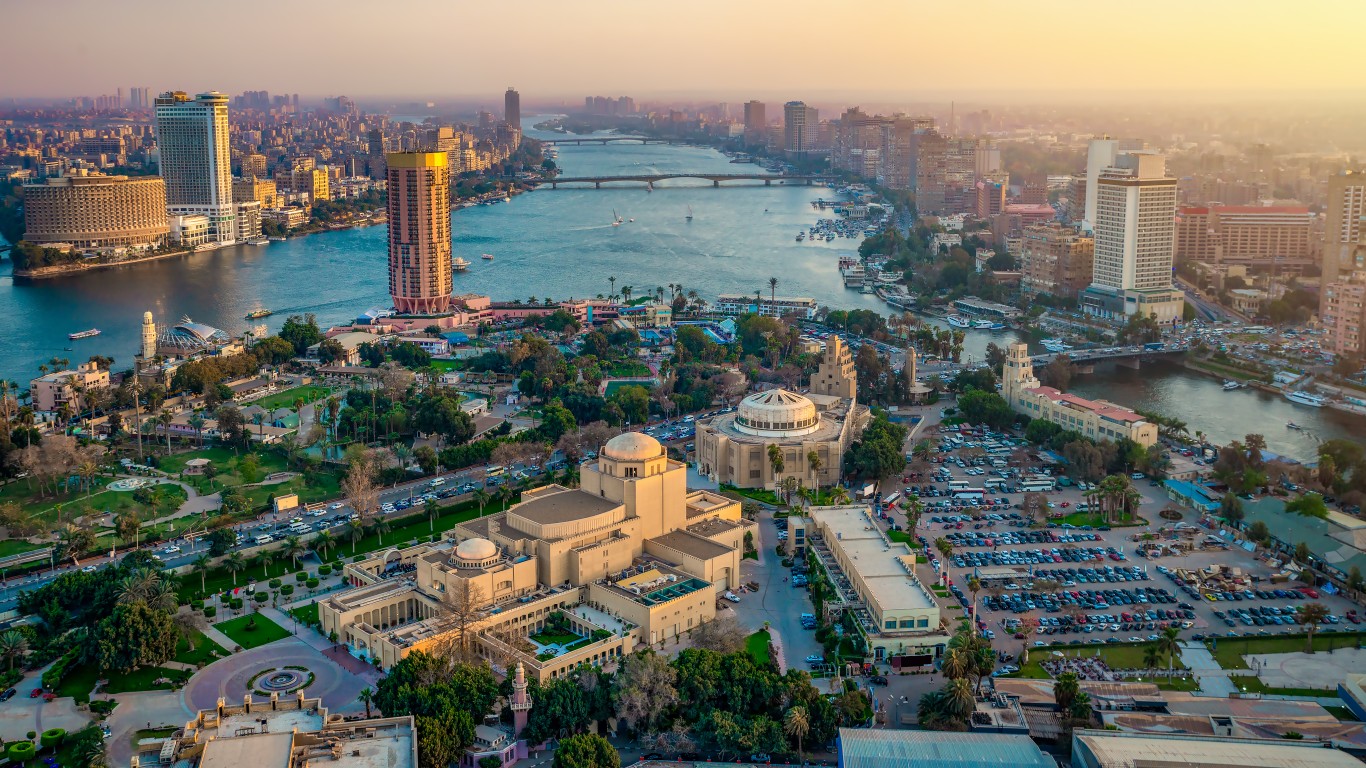
Egypt
> GDP, 2022: $477 billion (#32 highest of 215 countries)
> Pct of world GDP: 0.5%
> Exports, 2022: $72 billion (0.2% of world exports)
> Oil Production, 2022: 666.6 Mb/d (0.7% of world oil production)
> Population, 2022: 110,990,103 (1.4% of world population)
[in-text-ad]
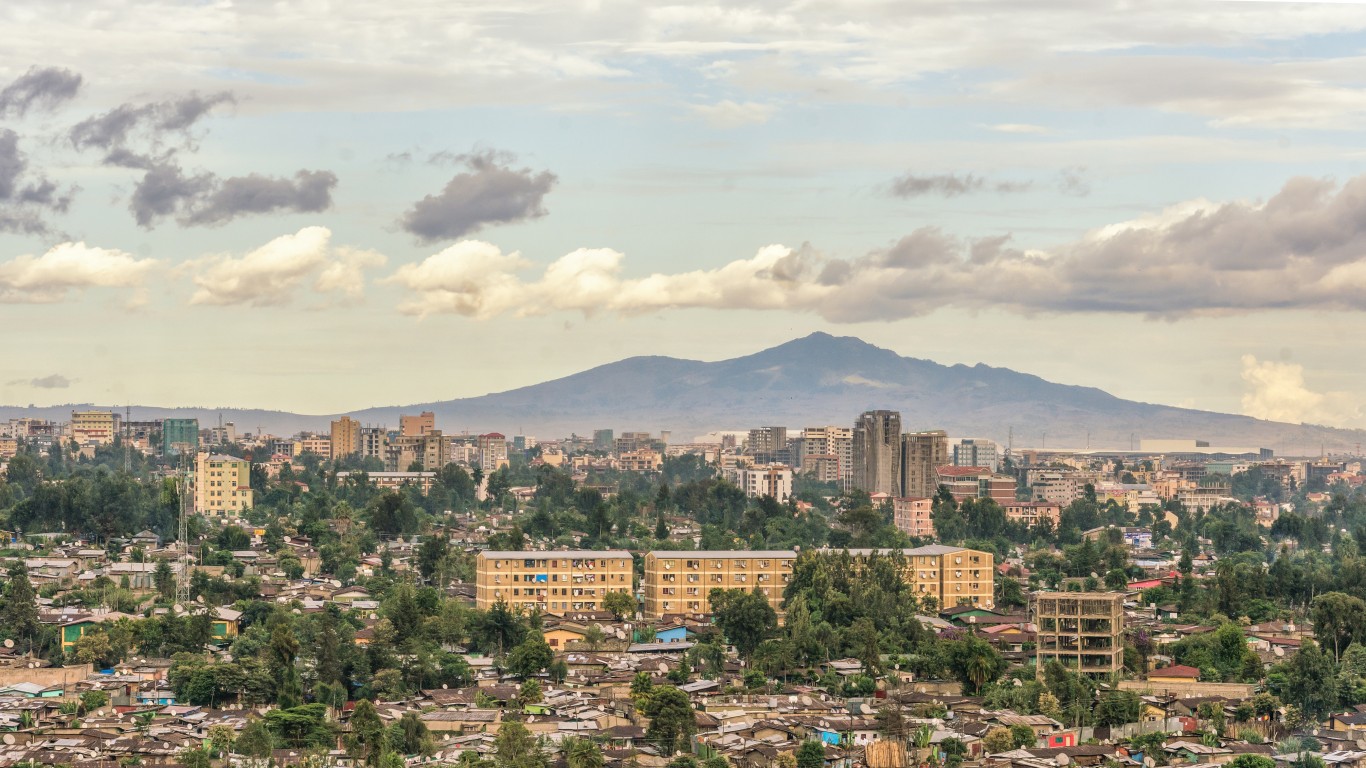
Ethiopia
> GDP, 2022: $127 billion (#61 highest of 215 countries)
> Pct of world GDP: 0.1%
> Exports, 2022: $10 billion (0.0% of world exports)
> Oil Production, 2022: 0.0 Mb/d (0.0% of world oil production)
> Population, 2022: 123,379,924 (1.6% of world population)
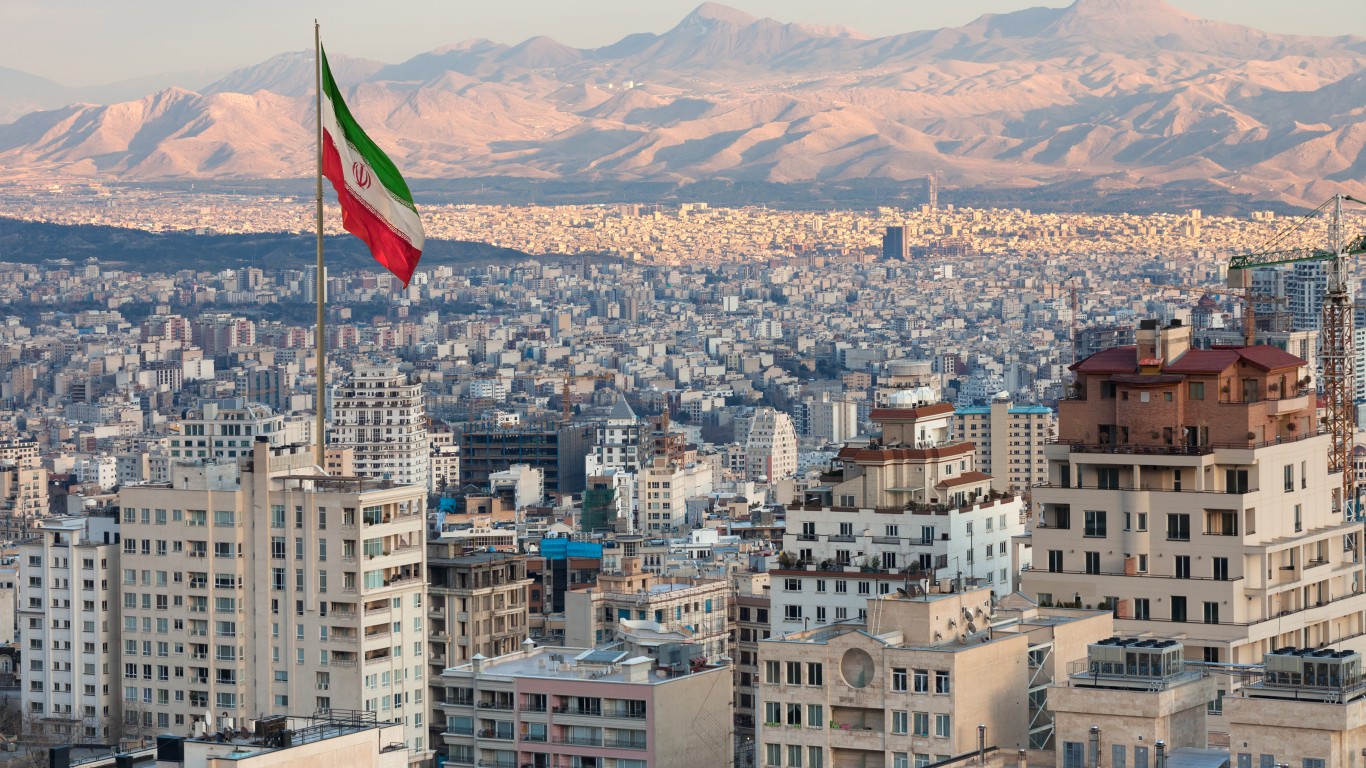
Iran
> GDP, 2022: $389 billion (#41 highest of 215 countries)
> Pct of world GDP: 0.4%
> Exports, 2022: $77 billion (0.2% of world exports)
> Oil Production, 2022: 3,660.6 Mb/d (3.7% of world oil production)
> Population, 2022: 88,550,570 (1.1% of world population)
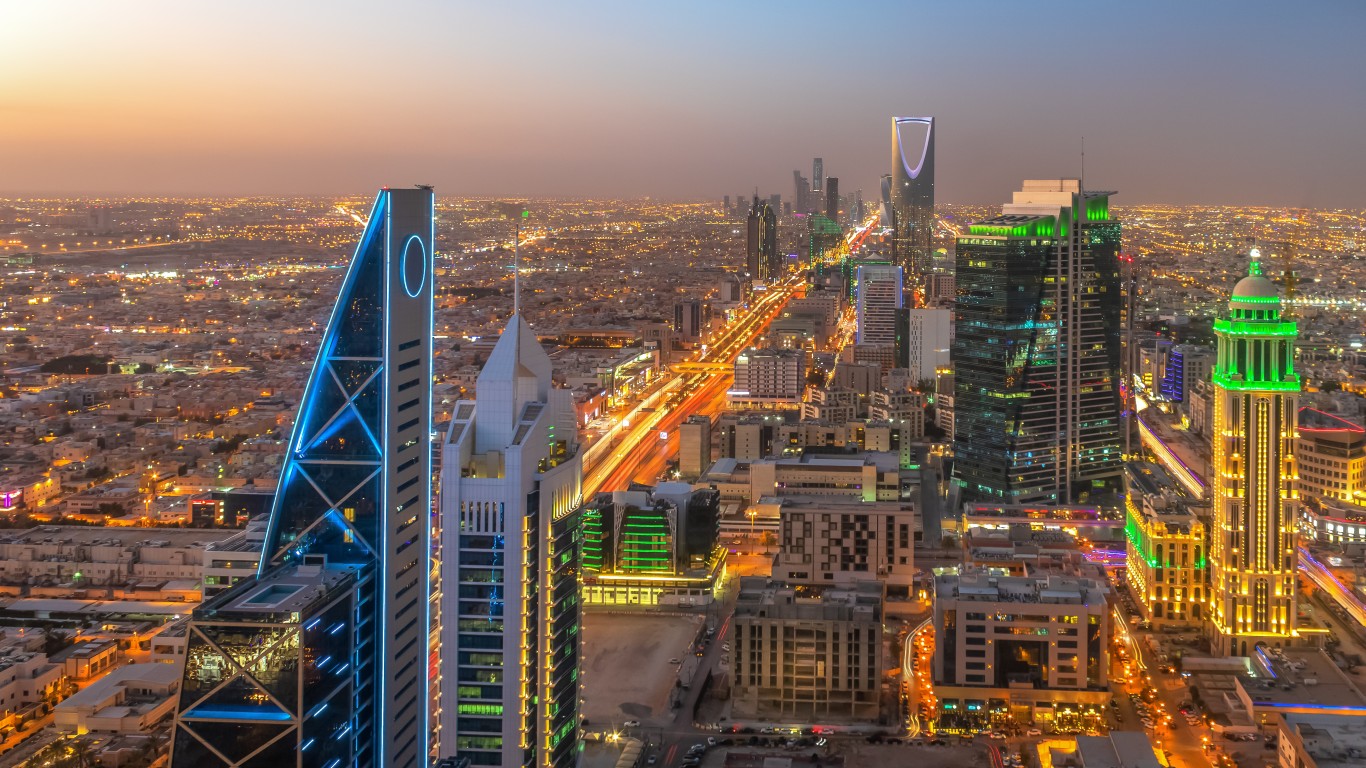
Saudi Arabia
> GDP, 2022: $1,108 billion (#17 highest of 215 countries)
> Pct of world GDP: 1.1%
> Exports, 2022: $442 billion (1.4% of world exports)
> Oil Production, 2022: 12,143.8 Mb/d (12.1% of world oil production)
> Population, 2022: 36,408,820 (0.5% of world population)
[in-text-ad-2]
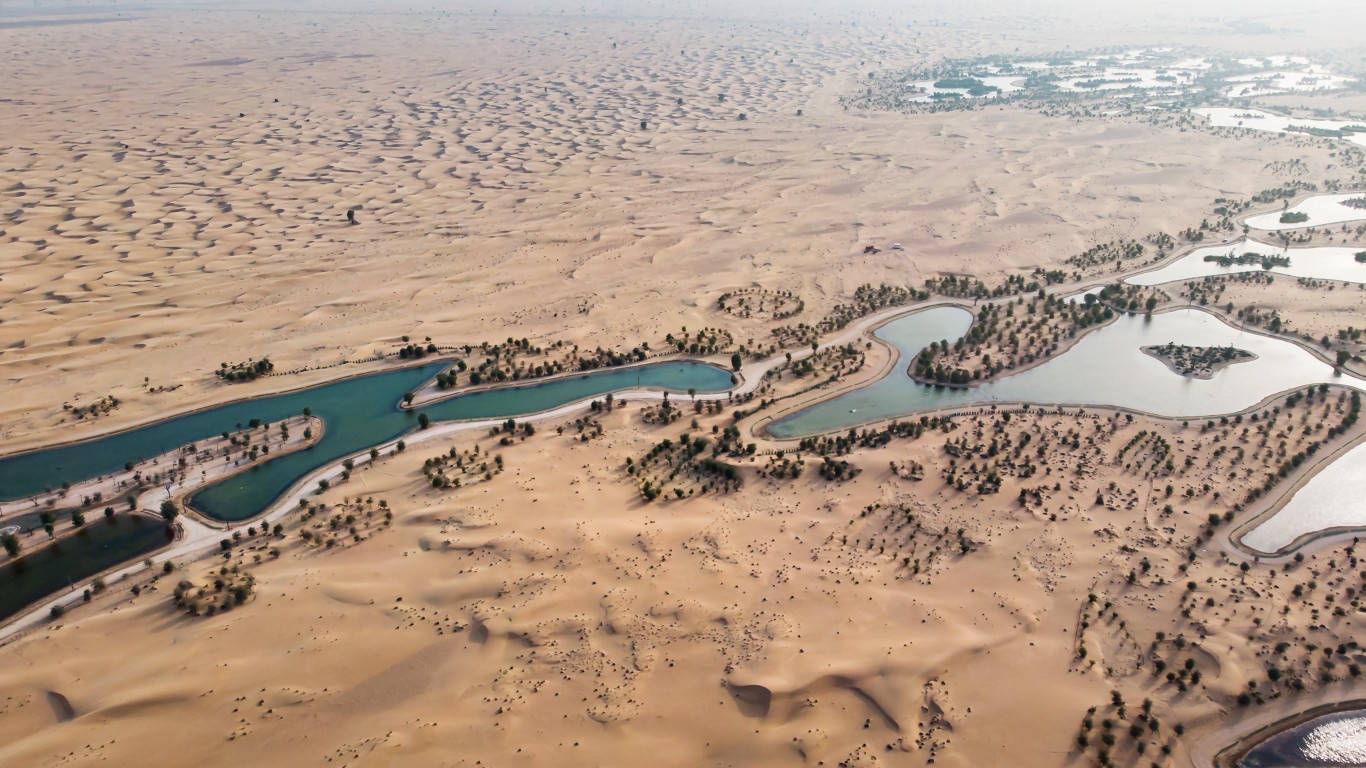
United Arab Emirates
> GDP, 2022: $508 billion (#28 highest of 215 countries)
> Pct of world GDP: 0.5%
> Exports, 2020: $335 billion (1.1% of world exports)
> Oil Production, 2022: 4,236.8 Mb/d (4.2% of world oil production)
> Population, 2022: 9,441,129 (0.1% of world population)
G7 Countries

Canada
> GDP, 2022: $2,140 billion (#9 highest of 215 countries)
> Pct of world GDP: 2.1%
> Exports, 2022: $722 billion (2.3% of world exports)
> Oil Production, 2022: 5,693.5 Mb/d (5.7% of world oil production)
> Population, 2022: 38,929,902 (0.5% of world population)
[in-text-ad]

France
> GDP, 2022: $2,783 billion (#7 highest of 215 countries)
> Pct of world GDP: 2.8%
> Exports, 2022: $947 billion (3.1% of world exports)
> Oil Production, 2022: 106.5 Mb/d (0.1% of world oil production)
> Population, 2022: 67,935,660 (0.9% of world population)
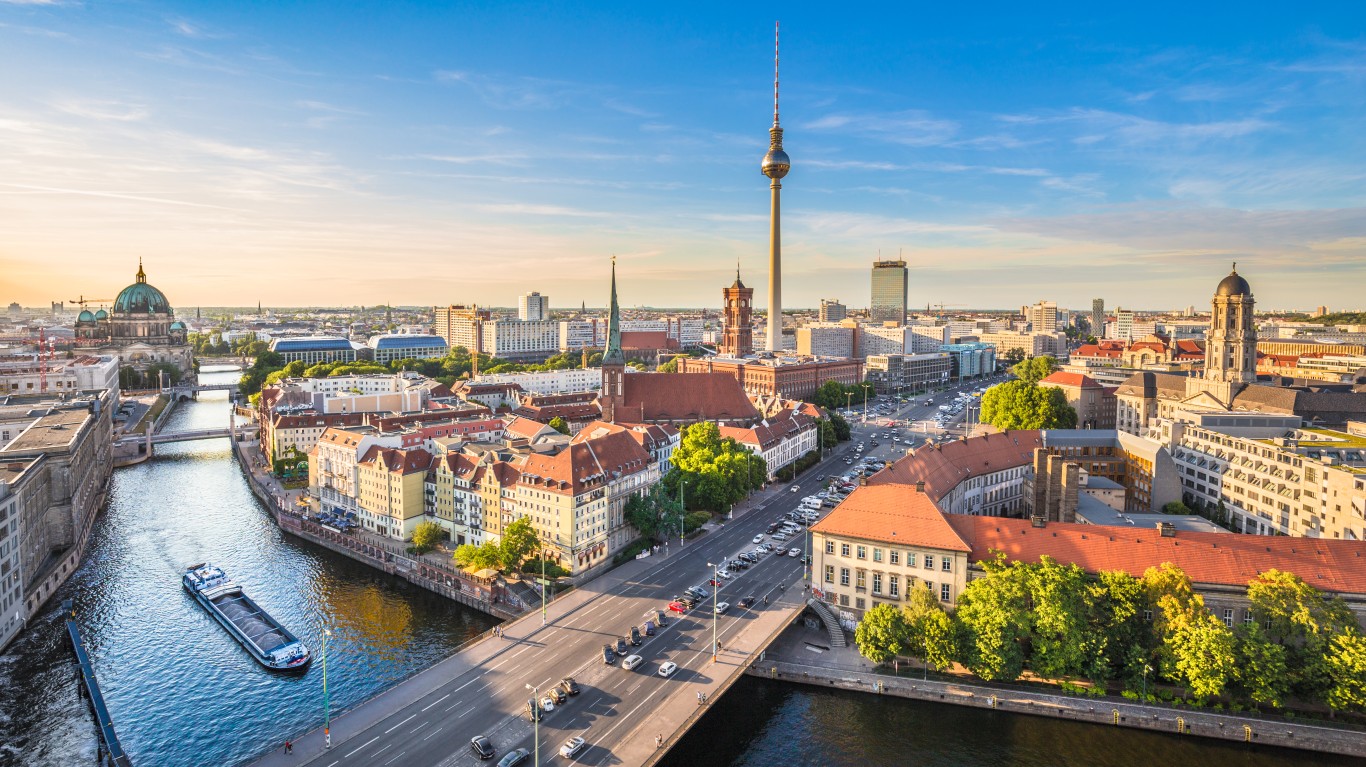
Germany
> GDP, 2022: $4,072 billion (#4 highest of 215 countries)
> Pct of world GDP: 4.0%
> Exports, 2022: $2,050 billion (6.7% of world exports)
> Oil Production, 2022: 185.2 Mb/d (0.2% of world oil production)
> Population, 2022: 84,079,811 (1.1% of world population)

Italy
> GDP, 2022: $2,010 billion (#10 highest of 215 countries)
> Pct of world GDP: 2.0%
> Exports, 2022: $747 billion (2.4% of world exports)
> Oil Production, 2022: 128.9 Mb/d (0.1% of world oil production)
> Population, 2022: 58,856,847 (0.7% of world population)
[in-text-ad-2]

Japan
> GDP, 2022: $4,231 billion (#3 highest of 215 countries)
> Pct of world GDP: 4.2%
> Exports, 2021: $911 billion (3.0% of world exports)
> Oil Production, 2022: 100.9 Mb/d (0.1% of world oil production)
> Population, 2022: 125,124,989 (1.6% of world population)

United Kingdom
> GDP, 2022: $3,071 billion (#6 highest of 215 countries)
> Pct of world GDP: 3.1%
> Exports, 2022: $1,005 billion (3.3% of world exports)
> Oil Production, 2022: 879.1 Mb/d (0.9% of world oil production)
> Population, 2022: 66,971,411 (0.8% of world population)
[in-text-ad]
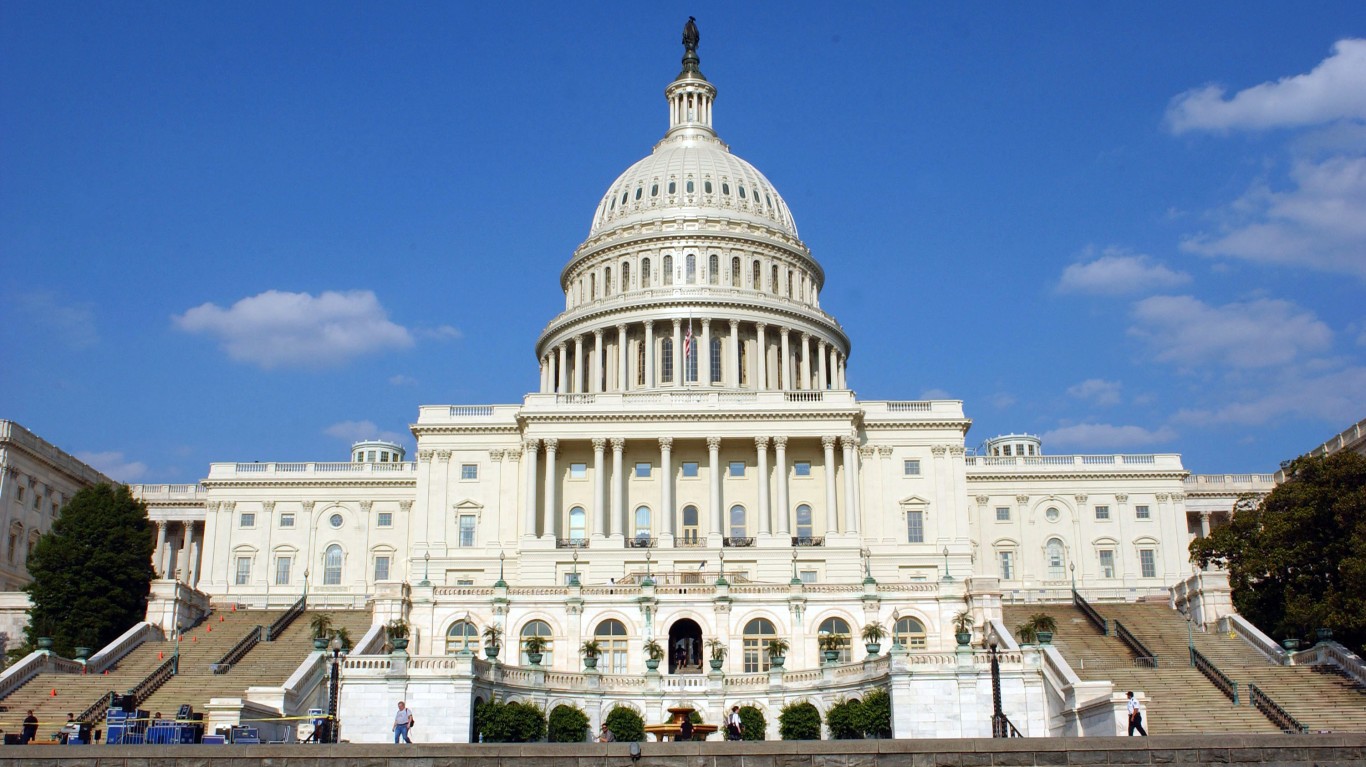
United States
> GDP, 2022: $25,463 billion (#1 highest of 215 countries)
> Pct of world GDP: 25.3%
> Exports, 2021: $2,540 billion (8.3% of world exports)
> Oil Production, 2022: 20,212.7 Mb/d (20.2% of world oil production)
> Population, 2022: 333,287,557 (4.2% of world population)

European Union (non-enumerated member)
> GDP, 2022: $16,641 billion (#3 highest of 215 countries)
> Pct of world GDP: 16.5%
> Exports, 2022: $9,304 billion (30.2% of world exports)
> Oil Production, 2022: N/A
> Population, 2022: 447,956,050 (5.6% of world population)
Credit card companies are pulling out all the stops, with the issuers are offering insane travel rewards and perks.
We’re talking huge sign-up bonuses, points on every purchase, and benefits like lounge access, travel credits, and free hotel nights. For travelers, these rewards can add up to thousands of dollars in flights, upgrades, and luxury experiences every year.
It’s like getting paid to travel — and it’s available to qualified borrowers who know where to look.
We’ve rounded up some of the best travel credit cards on the market. Click here to see the list. Don’t miss these offers — they won’t be this good forever.
Thank you for reading! Have some feedback for us?
Contact the 24/7 Wall St. editorial team.